Introduction
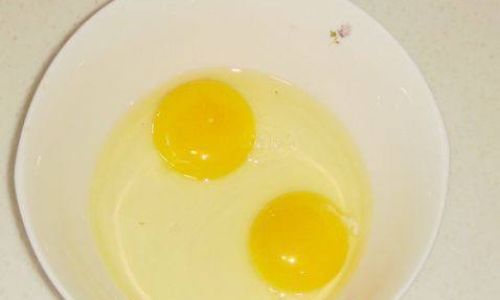
Duck eggs, often overshadowed by their more common counterpart, chicken eggs, hold a unique place in culinary traditions across various cultures. Their larger size, richer flavor, and higher nutritional content make them an excellent choice for those seeking to elevate their culinary experiences while enjoying a myriad of health benefits. This article delves into the intricacies of how to cook duck eggs to perfection, ensuring they are not only delicious but also packed with nutrients. From simple boiling and frying to more elaborate recipes, we will explore a variety of techniques and dishes that highlight the versatility and depth of flavor duck eggs can offer.
Understanding Duck Eggs: Nutritional Benefits
Before diving into the cooking methods, it’s crucial to understand why duck eggs are a nutritious choice. Compared to chicken eggs, duck eggs typically contain:
- Higher Fat Content: This includes a healthier balance of omega-3 and omega-6 fatty acids, which are beneficial for heart health.
- More Cholesterol: Although often perceived negatively, dietary cholesterol from natural sources like eggs has a limited impact on blood cholesterol levels for most people.
- Richer in Vitamins and Minerals: Duck eggs are a good source of vitamins A, D, E, and B12, as well as minerals like iron and selenium, which are essential for various bodily functions.
- Larger Size: The larger size of duck eggs means more protein and other nutrients per serving.
These nutritional attributes make duck eggs an ideal addition to a balanced diet, especially for those looking to increase their intake of healthy fats and essential nutrients.
Basic Preparation Techniques

-
Boiling Duck Eggs
- Method: Bring a pot of water to a gentle boil. Carefully place the duck eggs in the water using a spoon to avoid cracking the shells. Boil for about 7-9 minutes for a medium-cooked yolk or longer if you prefer a fully set yolk.
- Tip: Adding a pinch of salt to the boiling water can help prevent the eggs from cracking.
-
Soft-Boiling Duck Eggs
- Method: Follow the same process as boiling but reduce the cooking time to 4-5 minutes for a runny yolk.
- Serving: Serve soft-boiled duck eggs in egg cups with toast or avocado slices for a nutritious breakfast.
-
Poaching Duck Eggs
- Method: Bring a pot of water to a simmer. Crack the duck eggs into a bowl or ramekin. Create a gentle whirlpool in the water using a spoon and carefully slide the eggs into the center. Cook for about 3-4 minutes for a runny yolk or longer for a firmer texture.
- Serving: Poached duck eggs are perfect atop salads, asparagus, or hollandaise sauce for a gourmet touch.
-
Frying Duck Eggs
- Method: Heat a non-stick pan over medium heat with a small amount of butter or oil. Crack the duck eggs into the pan and cook until the whites are set but the yolks are still runny (or to your preferred doneness).
- Tip: Season with salt and pepper just before serving to avoid drawing out moisture from the eggs.
Advanced Cooking Techniques and Recipes
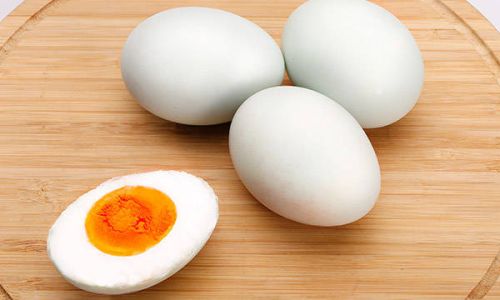
-
Duck Egg Omelette
- Ingredients: Duck eggs, chopped herbs (such as chives or parsley), grated cheese, salt, and pepper.
- Method: Whisk the duck eggs with a pinch of salt and pepper. Add the chopped herbs and a handful of grated cheese. Pour the mixture into a lightly oiled, heated skillet. Cook on medium heat, stirring gently until the eggs begin to set. Fold the omelette in half and cook until the cheese is melted and the eggs are fully cooked.
- Serving: Serve hot with a side of fresh salad or toasted bread.
-
Duck Egg Scramble with Vegetables
- Ingredients: Duck eggs, diced bell peppers, onions, spinach, cherry tomatoes, salt, and pepper.
- Method: Sauté the vegetables in a pan with a little olive oil until they are tender. Whisk the duck eggs with salt and pepper and pour over the vegetables. Scramble gently until the eggs are cooked to your liking.
- Serving: Garnish with freshly chopped herbs and serve with a slice of whole-grain toast.
-
Duck Egg and Avocado Toast
- Ingredients: Duck eggs, ripe avocado, whole-grain bread, lemon juice, salt, pepper, and red pepper flakes (optional).
- Method: Toast the bread to your preferred level of crispiness. Mash the avocado with a fork, adding lemon juice, salt, and pepper to taste. Spread the avocado mixture over the toast. Fry the duck eggs sunny-side up and place them on top of the avocado toast. Sprinkle with red pepper flakes if desired.
- Serving: Enjoy as a hearty breakfast or brunch dish.
-
Duck Egg and Mushroom Risotto
- Ingredients: Duck eggs, Arborio rice, chicken or vegetable broth, diced mushrooms, shallots, garlic, white wine (optional), butter, Parmesan cheese, salt, and pepper.
- Method: Sauté the shallots and garlic in butter until translucent. Add the mushrooms and cook until they release their juices. Stir in the Arborio rice and cook for a few minutes. Add a ladle of broth, stirring constantly, until absorbed. Repeat with remaining broth, adding white wine if using. Once the rice is creamy and cooked, stir in grated Parmesan cheese. Make a well in the center of the risotto, crack a duck egg into it, and let it cook gently until the whites are set but the yolk is still runny.
- Serving: Garnish with freshly grated Parmesan and a sprinkle of fresh herbs. Serve immediately.
-
Duck Egg and Asparagus Quiche
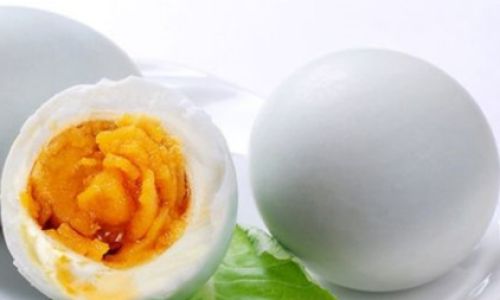
- Ingredients: Duck eggs, asparagus spears, pie crust (store-bought or homemade), cream or milk, grated cheese (such as Gruyère or cheddar), salt, and pepper.
- Method: Preheat your oven to 375°F (190°C). Trim and blanch the asparagus spears until tender. Roll out the pie crust and fit it into a tart pan. In a bowl, whisk together the duck eggs, cream or milk, salt, and pepper. Arrange the asparagus spears in the bottom of the crust, pour in the egg mixture, and sprinkle with grated cheese. Bake for about 35-40 minutes, or until the quiche is set and the top is golden brown.
- Serving: Allow the quiche to cool slightly before slicing. Serve warm or at room temperature with a side salad.
Conclusion
Duck eggs, with their rich flavor and superior nutritional profile, offer a delightful and nutritious addition to any meal. From simple preparations like boiling and frying to more elaborate dishes like omelettes, scrambles, and quiches, the versatility of duck eggs allows for endless culinary creativity. By mastering these cooking techniques and recipes, you can elevate your culinary experiences while enjoying the myriad of health benefits duck eggs provide. Whether you’re preparing a quick breakfast for one or a gourmet dinner for friends, duck eggs are sure to impress with their unique taste and nutritional value. So, the next time you’re at the market, consider picking up a carton of duck eggs and start exploring the world of delicious and nutritious culinary possibilities.

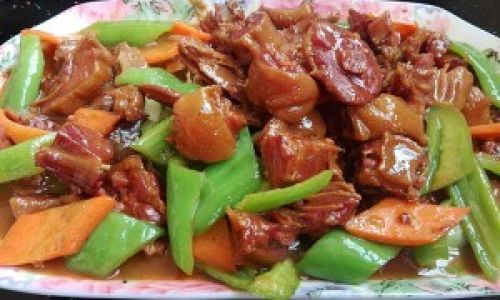

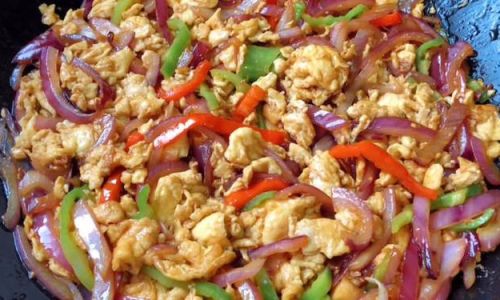
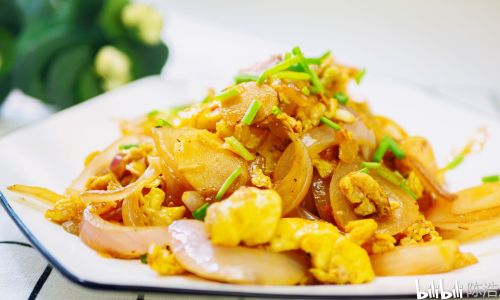
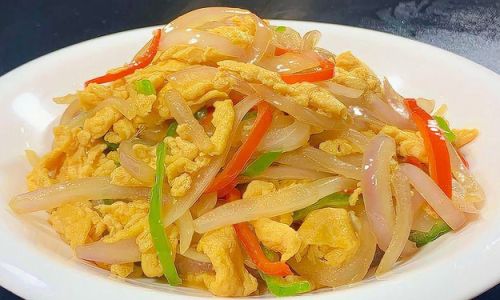
0 comments